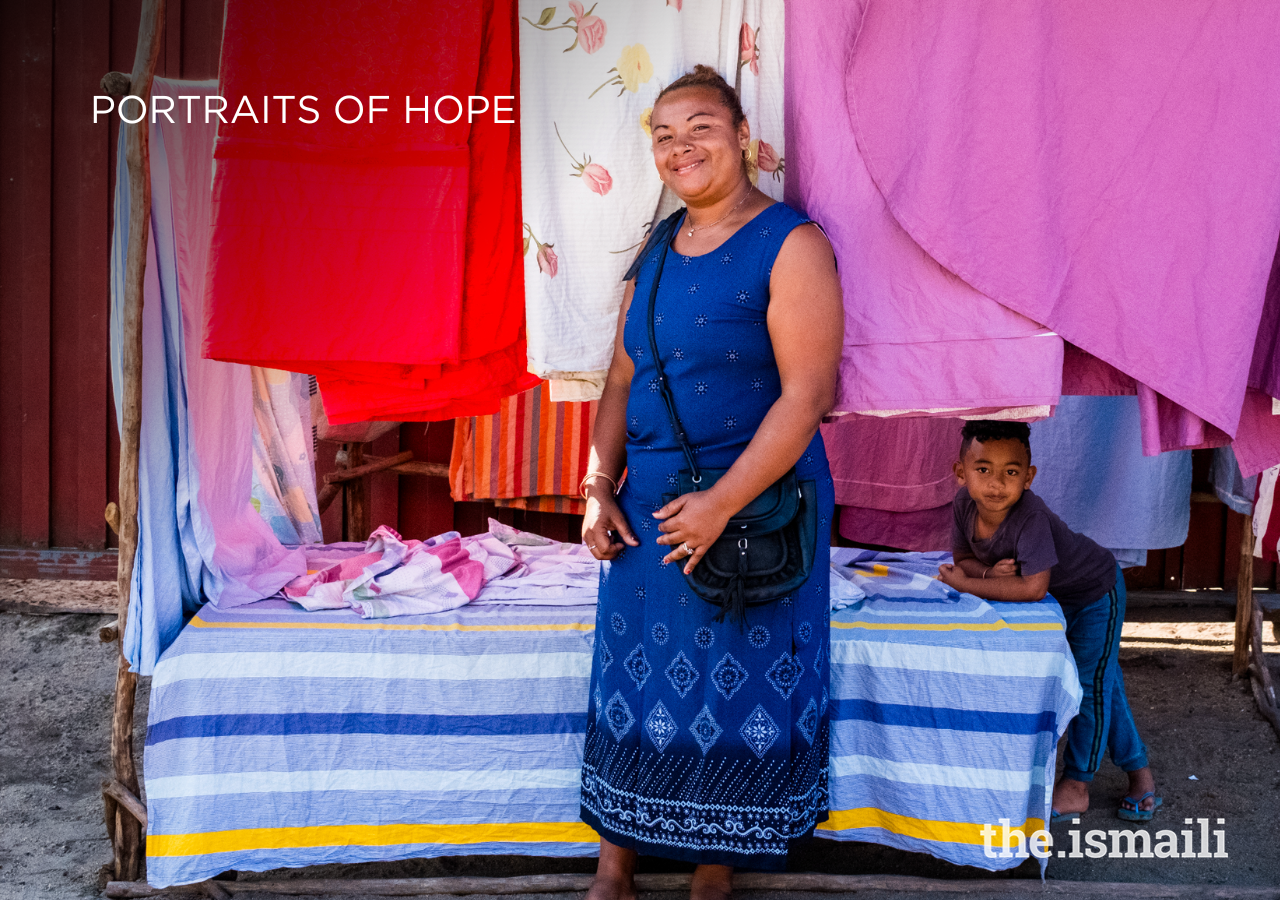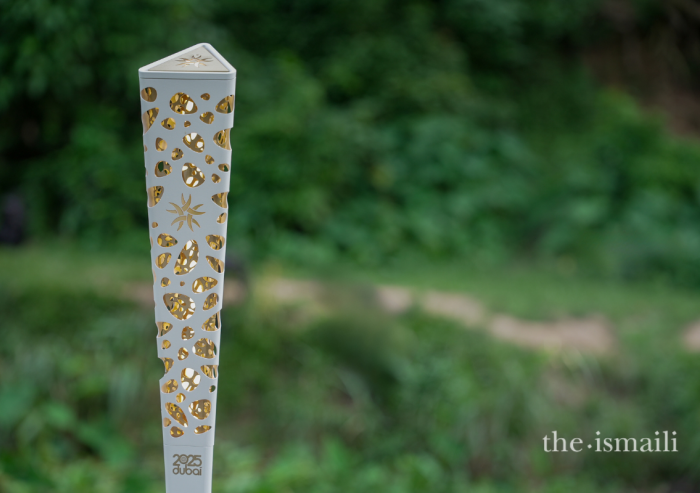I’ve been knocked down more times than I can count, but I always got back up—I had to, since my family depended on me.
My husband and I began with nothing, raising our two children while struggling to make ends meet. I remember the nights when I’d lie awake, my mind spinning with worry. My husband worked long hours at a car parts shop, but the money was never enough. The debt from our wedding hung over us, and it felt like every step forward was met with two steps back. We survived on the small rent from my house 500km away in Mananjary, but as our children grew, so did our needs. I had to do something.
I started selling second-hand clothes, but still, it felt like we were barely treading water. And then, in 2021, Roshni began. I don’t say this lightly; it changed everything. The programme team didn’t just see me as someone struggling; they saw me as someone who could thrive. My mentor gave me food baskets when we had nothing to feed the kids, and they gave me a loan to really start my own business.
At first, I didn’t believe in myself as much as they did. They asked me questions about my expenses and profits, which felt overwhelming. Honestly, I became frustrated, but little by little, I started to understand they were helping me build something solid, something that would last. My mentor didn’t just teach me about money; she became my anchor. I never imagined another member of the Jamat would support me the way she did. She was there when I felt like giving up, checking on me, listening to my worries, and never judging me. She gave me hope when I had none.
Today, our family is stronger, as is our financial situation. I still sell second-hand clothes, but with the savings earned, I started a second business selling charcoal too. I’ve gone from feeling powerless to being in control of my future. It's not just about the money – even in the face of personal and health-related difficulties, Roshni and my mentor gave me the strength to believe that I could do more.
I don’t know where I’d be without them, and honestly, I don’t want to think about it. All I know is that today I’m standing tall, and I’m no longer afraid of what’s ahead.
— — —
The Ismaili Imamat has been working for many decades to alleviate poverty in the Jamat, and since Mawlana Hazar Imam’s Golden Jubilee, National Councils around the world have accelerated this work. The Family Development Programme (FDP), known in Madagascar as Roshni, helps families to set goals, build financial stability, boost resilience, and envision hope for a future free of poverty. It is designed based on global best practices and has been adapted to the Jamats’ specific contexts.
The programme works on the premise of Jamat helping the Jamat. The mentor relationship is one of kinship with the mentor embedded into a family as a support structure who accompanies them through their journey. Thanks to the time, effort and resources invested into the initiative by Hazar Imam and his institutions, this work has led to significant results.
Globally, over 70,000 murids have been positively impacted by poverty elimination programmes with the support of 2,000 volunteers and staff thus far. In a recent survey of families, 85 percent indicated the programme has positively impacted their happiness and hope for the future, and that mentorship has enabled them to progress faster. Monthly family incomes for those progressing through the programme are significantly higher now than when they entered.
While the Jamati institutions can organise services, provide referrals and arrange financing, this alone will not be sufficient. The National Councils invite the whole Jamat to take ownership, to be responsible for one another, to actively engage across socio-economic, cultural and language groups, and geographies to help lift up those who require support.








